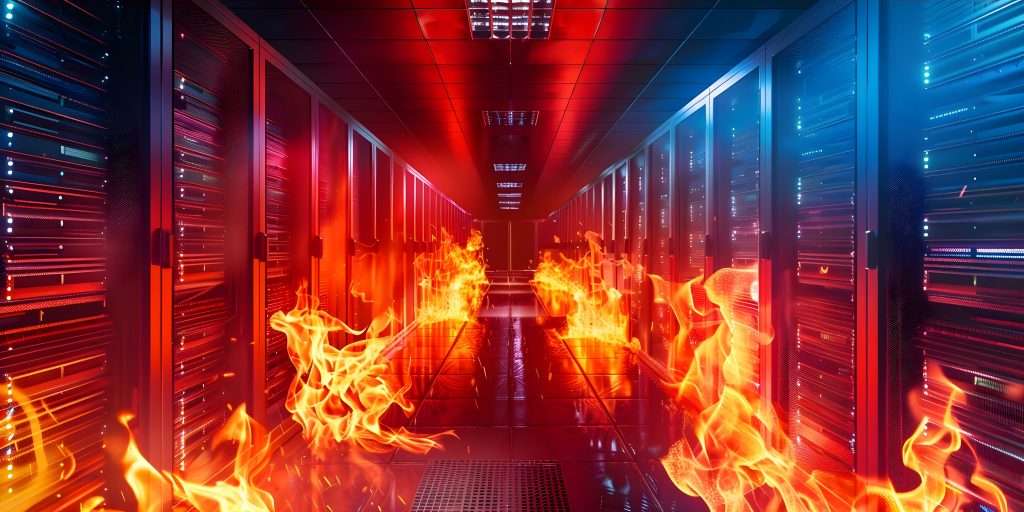Data processing and storage have become increasingly critical to personal, financial and medical records, essentially making Data Centres the central nervous system of business and society. As our dependence on Data Centres keeps growing, these facilities are working hard 24/7 to ensure that digital information is safe in terms of both cyber and physical security.

Given the increasing importance of Data Centres in our business and personal lives, it’s essential that they remain intact and operational as the industry expands, the global Data Centre construction figure is set to reach £497 billion. That’s precisely why it’s so critical to address a serious, but often overlooked, threat to Data Centres, this threat is FIRE. For the Data Centre itself, a fire can lead to equipment failure or loss and service disruption to businesses as well as loss of the entire building. The cost of downtime in a large processing centre can exceed £1.5 million per hour.
All Data Centres should have the highest measures of passive fire protection measures installed, installing passive fire protection (PFP) in Data Centre requires specialized knowledge and expertise to ensure that all fire safety measures are implemented correctly and effectively.
The professionals involved in the Data Centre fire safety process typically include:
Fire protection engineers design, plan, and oversee the installation of passive fire protection systems. They ensure that the PFP measures comply with relevant codes and standards and are tailored to the specific needs of the Data Centre.
The Qualifications they usually hold are degrees in fire protection engineering or related fields and are often certified by professional bodies such as the National Fire Protection Association (NFPA) or other recognized institutions.
These contractors specialise in installing firestopping systems, including seals for penetrations through fire-rated walls and floors. They ensure that all penetrations are properly sealed to maintain the integrity of fire barriers.
The Qualifications they should hold are certifications from organisations such as the Firestop Contractors International Association (FCIA) or similar bodies, indicating they have the required expertise and training.
The Inspectors check that passive fire protection measures meet local building codes and standards. They review plans and conduct site inspections to verify that installations are compliant.
The qualifications that the Inspectors typically have are certifications from local government or regulatory agencies and may hold professional credentials related to fire safety and building codes.
Architects and Designers play a key role in planning the layout and integration of passive fire protection systems into the overall design of the Data Centre. They work closely with fire protection engineers to ensure that fire-rated barriers and compartments are incorporated effectively. Architects and designers often have degrees in architecture or engineering and may have additional training or certification in fire safety design.
General contractors or construction firms are responsible for the actual construction and installation of fire-rated walls, floors, and ceilings, as well as the installation of fire doors and other PFP elements.
Contractors should have experience with fire protection systems and adhere to best practices for installing fire-resistant materials. They may not be specialists but should work with specialists to ensure compliance.
These specialists apply fire-resistant coatings and treatments to structural components like steel beams to enhance their fire resistance. The organisation and individuals should have training and experience in fireproofing materials and techniques, including certifications from relevant industry organizations.
Choosing the Right Professionals, when selecting professionals for installing passive fire protection measures in Data Centres, it is important to ensure they have the relevant experience, specifically within IT or similar technology-based facilities. It is crucial for understanding the unique requirements and challenges that these environments can pose. Certifications and Training, look for certifications and credentials from recognised fire protection and safety organizations. References and Track Record, check references and review the track record of completed projects to ensure reliability and quality.
Collaboration among these professionals is key to implementing a comprehensive and effective passive fire protection strategy, ensuring the safety and integrity of the Data Centre.

Operations Director, Critical Facilities Solutions LTD
